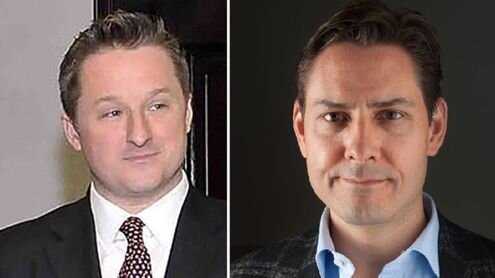I loved the New York Times obituary about Bob, including the wonderful photos of him. Yet I felt that it didn’t give his work with HRIC its due. With Bob’s prodding and support, HRIC has not only informed the world about the Communist Party’s latest repression of freedoms of expression and arbitrary detention of Chinese who seek to exercise those freedoms, but has also courageously fought to hold the Chinese Government and the Party accountable for their transgressions before the United Nations and other international organizations.
Moreover, Bob was not simply concerned with human rights at large and in the abstract. He cared deeply about the individuals involved, the victims and their front line defenders and also their families. He would often call many of us to ask for ideas about how to find a job for newly-released Chinese dissidents who managed to reach this country or a college opportunity for their children.
Bob’s fierce determination to give voice to the necessarily voiceless was a regular feature of New York’s many China programs. He made sure that the PRC’s increasing economic development, diplomatic influence and military prowess would not divert us from also considering the human, social and legal costs of its violations of the political and civil rights of its citizens.
I will never forget the lunch at the Council on Foreign Relations where, after listening to a comforting speech by the then Chinese ambassador to the United States, Bob, who was seated directly in front of the speaker, immediately and prominently shot his hand in the air to ask a question that the audience, knowing Bob, anticipated would shatter the harmony. The presider, however, a well-known member of the financial community, kept ostentatiously ignoring Bob’s hand. Finally, Les Gelb, then the Council’s president, to the evident satisfaction of the audience, eased the tension via a stage whisper to the presider: “You’ve got to recognize him!”, at which point Bob did the expected.
Bob was also a tireless human rights advocate behind the scenes. One day, for example, he insisted that I join him in calling on the then president of the Ford Foundation in a final attempt to persuade him to fund the work of HRIC. As Bob knew, Ford, which has done so much to aid China’s modernization, including the development of its legal system, was a reluctant dragon because the Beijing regime has always branded HRIC a “counterrevolutionary” organization. Ford, which has generously supported our NYU US-Asia Law Institute’s law reform projects in China, was concerned that funding HRIC might prejudice Ford’s many ongoing activities in the People’s Republic. I remember three things about that meeting: Bob’s passionate perseverance despite the odds, the respect with which Ford’s president treated him and the grace Bob demonstrated in receiving our inevitable disappointment.
We recovered soon afterward at one of our periodic breakfasts at the University Club, which Bob hosted and knew I enjoyed and which he effectively used as a vehicle for involving me in yet another human rights controversy with the Central Realm. Every time Bob invited me there I knew I would be risking the rice bowls of my law firm colleagues devoted to China and our NYU research associates and perhaps forfeit my next visa.
I could rattle on with other anecdotes but want to end with a tribute to Helen and Bob and their children, who are carrying on his human rights traditions. Bill has recently served as chairman of HRIC and, like the loyal NYU alumnus he is, was instrumental in establishing our comprehensive and innovative NYU Law School Robert L. Bernstein Institute for Human Rights in which Sharon Hom and our US-Asia Law Institute take part. Tom is Co-chair of another dynamic and international human rights organization, Human Rights First, is Chair Emeritus of the United States Holocaust Memorial Museum and was instrumental in establishing the groundbreaking Bernstein program on human rights at his alma mater, Yale Law School. Peter, with whom I have had the pleasure of cooperating on some publishing projects, has taken a page from each of his father’s two careers and played an invaluable role in bringing to publication many excellent books relating to China and human rights that might have otherwise been still-born. Helen has presided over this energetic menagerie with apparent, if occasionally bemused, equanimity.
Bob was understandably proud of his sons’ perpetuation of his work and indeed proud of all the young people who have flourished and contributed to it, thanks to the foresight and support of the programs in Bob’s honor at Yale and NYU. I feel especially privileged to benefit even today from the continuing help of several of those NYU law students who went on to enjoy the Bernstein fellowships that enabled them to learn the ropes of human rights advocacy at HRIC.
I only came to know Bob toward the end of his impressive publishing career, at a time when he might well have rested on his laurels but instead went on to further achievements in the human rights field. I always told him that I hope to be like him when I grow up! His accomplishments and friendship during the marvelous second phase of his career make me want to recall a few words from Robert Browning’s “Rabbi Ben Ezra”:
“Grow old along with me, The best is yet to be, The last of life for which the first was made. Our times are in His hand, Who saith ‘A whole I planned.’ ……. Let age approve of youth and death complete the same.”








